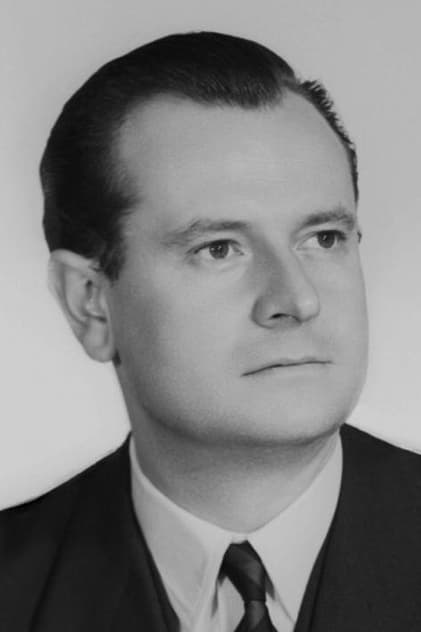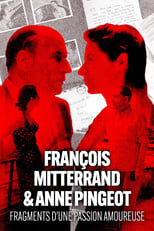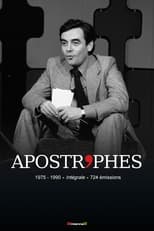

Jean Lecanuet
Born: March 4, 1920
Died: February 22, 1993
in Rouen, Seine-Maritime, France
Died: February 22, 1993
in Rouen, Seine-Maritime, France
Jean Adrien François Lecanuet (4 March 1920 – 22 February 1993) was a French centrist politician.
Lecanuet was born to a family of modest means in Rouen and gravitated towards philosophy studies. He received his diploma at the age of 22, becoming the youngest agrégé ("A+" professor) in France. He participated in the Second World War French Resistance movement. In August 1944, he was arrested along with a commando that had just blown up the Lille-Brussels railroad, but he managed to escape with the help of a Pole who had been drafted into the German army. He then married Denise Paillard with whom he had three children.
After the Liberation, he became a general inspector at the Ministry of Defence.
Under the Fourth Republic, Lecanuet held ministerial posts numerous times (11 posts in 10 years) and was a member of the Christian-Democratic Popular Republican Movement (MRP). From 1951 to 1955, he was MRP deputy from the Seine-Inférieure region. He became senator from Seine-Maritime in 1959 and was president of the MRP from 1963 to 1965.
In 1965, he ran in the presidential election as a center-right candidate. He was supported by Paul Reynaud. He advocated modernity and European integration and declared to represent a third way between Gaullism on the one hand and the Socialist and Communist Left on the other hand. His "modern-style" campaign and dashing smile had some journalists nickname him "the French Kennedy". Lecanuet obtained 3,777,120 votes (15.6%) in the election's first round, forcing Charles de Gaulle to compete in a second round against François Mitterrand. He replaced the ageing MRP by the Democratic Centre, integrating the liberal-conservative National Centre of Independents and Peasants.
In 1972, Lecanuet founded the Reforming Movement with Jean-Jacques Servan-Schreiber. During the French legislative elections of 1973, Lecanuet negotiated the withdrawal of candidates with Pierre Messmer to ensure the success of the majority. He was elected deputy of Seine-Maritime and actively participated in the 1974 presidential election campaign in support of Valéry Giscard d'Estaing.
Lecanuet was Minister of Justice in Jacques Chirac's first cabinet (1974–1976). From 1976 to 1977, he was Minister of State in charge of planning and the l’Aménagement du territoire (zoning commission) Raymond Barre's first cabinet. In 1978, he was elected president of the UDF, the party coalition created to support President Valéry Giscard d'Estaing. He held that position until 1988. From 1979 to 1988, he was a Deputy in the European Parliament and, as Senator for Seine-Maritime, the French Senate's chairman of the Foreign Affairs and Armed Forces Commission, a post that he had already held between 1971 and 1973.
In 1986 at the beginning of the first period of "cohabitation" in modern French politics (a President and Prime Minister from opposing parties sharing power) Chirac nominated Lecanuet as Foreign Minister, but President François Mitterrand vetoed the appointment, along with some of Chirac's other nominees.
In 1968, he was elected Mayor of Rouen, a position he held for 23 years until his death.
He dies of cancer on the 22nd of February 1993.
Source: Article "Jean Lecanuet" from Wikipedia in English, licensed under CC-BY-SA 3.0.
Lecanuet was born to a family of modest means in Rouen and gravitated towards philosophy studies. He received his diploma at the age of 22, becoming the youngest agrégé ("A+" professor) in France. He participated in the Second World War French Resistance movement. In August 1944, he was arrested along with a commando that had just blown up the Lille-Brussels railroad, but he managed to escape with the help of a Pole who had been drafted into the German army. He then married Denise Paillard with whom he had three children.
After the Liberation, he became a general inspector at the Ministry of Defence.
Under the Fourth Republic, Lecanuet held ministerial posts numerous times (11 posts in 10 years) and was a member of the Christian-Democratic Popular Republican Movement (MRP). From 1951 to 1955, he was MRP deputy from the Seine-Inférieure region. He became senator from Seine-Maritime in 1959 and was president of the MRP from 1963 to 1965.
In 1965, he ran in the presidential election as a center-right candidate. He was supported by Paul Reynaud. He advocated modernity and European integration and declared to represent a third way between Gaullism on the one hand and the Socialist and Communist Left on the other hand. His "modern-style" campaign and dashing smile had some journalists nickname him "the French Kennedy". Lecanuet obtained 3,777,120 votes (15.6%) in the election's first round, forcing Charles de Gaulle to compete in a second round against François Mitterrand. He replaced the ageing MRP by the Democratic Centre, integrating the liberal-conservative National Centre of Independents and Peasants.
In 1972, Lecanuet founded the Reforming Movement with Jean-Jacques Servan-Schreiber. During the French legislative elections of 1973, Lecanuet negotiated the withdrawal of candidates with Pierre Messmer to ensure the success of the majority. He was elected deputy of Seine-Maritime and actively participated in the 1974 presidential election campaign in support of Valéry Giscard d'Estaing.
Lecanuet was Minister of Justice in Jacques Chirac's first cabinet (1974–1976). From 1976 to 1977, he was Minister of State in charge of planning and the l’Aménagement du territoire (zoning commission) Raymond Barre's first cabinet. In 1978, he was elected president of the UDF, the party coalition created to support President Valéry Giscard d'Estaing. He held that position until 1988. From 1979 to 1988, he was a Deputy in the European Parliament and, as Senator for Seine-Maritime, the French Senate's chairman of the Foreign Affairs and Armed Forces Commission, a post that he had already held between 1971 and 1973.
In 1986 at the beginning of the first period of "cohabitation" in modern French politics (a President and Prime Minister from opposing parties sharing power) Chirac nominated Lecanuet as Foreign Minister, but President François Mitterrand vetoed the appointment, along with some of Chirac's other nominees.
In 1968, he was elected Mayor of Rouen, a position he held for 23 years until his death.
He dies of cancer on the 22nd of February 1993.
Source: Article "Jean Lecanuet" from Wikipedia in English, licensed under CC-BY-SA 3.0.
Movies for Jean Lecanuet...

Title: François Mitterrand & Anne Pingeot: Pieces of a Love Story
Character: Self (archive footage)
Released: May 16, 2021
Type: Movie
In the summer of 1963, François Mitterrand was going through a deep existential crisis. His political career was at a standstill and, after 19 years of marriage, the couple had grown apart. It was at this point that François Mitterrand met the woman who was to give new meaning to his life. Anne Pingeot, aged 19, was to become the companion of a lifetime, a woman who would be with him throughout his rise to power and who would remain by his side until his last breath. For the first time, Anne Pingeot has agreed to allow the fragments of this passionate love story — hundreds of letters and a diary — to be shown on television, before being donated to the National Library.


Title: De Gaulle, the Last King of France
Character: Self (archive footage)
Released: March 27, 2017
Type: Movie
Charles de Gaulle, the first president (1958-1969) of the Vth Republic, France’s current system of government, left his mark on the country . He was statesman of action and has been compared to a monarch. This film depicts the general’s personality through the great events of his presidential term, at a time when the world was undergoing considerable changes.


Title: 1974, une partie de campagne
Character: Self
Released: February 20, 2002
Type: Movie
Following the 1974 French presidential campaign with Valery Gicard d'Estaing


Title: Promesses
Released: January 1, 1992
Type: Movie
An 8-minute satire on politics featuring the first French presidential election campaign broadcasts from 1965 and The Shadoks.


Title: Apostrophes
Character: Self
Released: January 10, 1975
Type: TV
Apostrophes was a live, weekly, literary, prime-time, talk show on French television created and hosted by Bernard Pivot. It ran for fifteen years (724 episodes) from January 10, 1975, to June 22, 1990, and was one of the most watched shows on French television (around 6 million regular viewers). It was broadcast on Friday nights on the channel France 2 (which was called "Antenne 2" from 1975 to 1992). The hourlong show was devoted to books, authors and literature. The format varied between one-on-one interviews with a single author and open discussions between four or five authors.
